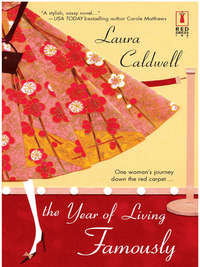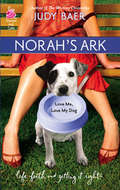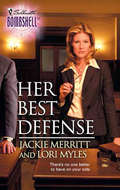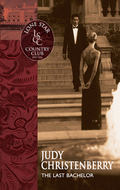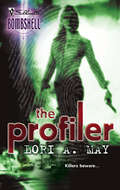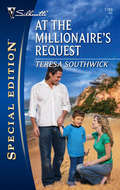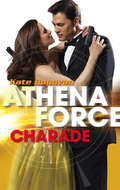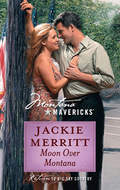Das Buch kann nicht als Datei heruntergeladen werden, kann aber in unserer App oder online auf der Website gelesen werden.
Buch lesen: "The Year Of Living Famously"
Praise for the novels of Laura Caldwell
The Year of Living Famously
“Sharply observed, fresh and compelling, The Year of Living Famously is a captivating look into the cult of celebrity.”
—Leslie Stella, author of The Easy Hour and Fat Bald Jeff
“A stylish, sassy novel that shows the dark side that haunts the world of glamour and glitz. Laura Caldwell paints a sensitive picture of two ordinary lives thrown into turmoil by the pressures of fame.”
—USA TODAY bestselling author Carole Matthews
“Hollywood power players, paparazzi and overzealous fans—Laura Caldwell takes readers inside the precarious world of celebrity with a captivating story about the cost of following your dreams and the high price of fame.”
—Jennifer O’Connell, author of Bachelorette #1
A Clean Slate
“Told with great energy and charm, A Clean Slate is for anyone who has ever fantasized about starting over—in other words, this book is for everyone!”
—Jill A. Davis, author of Girls’ Poker Night
“Weightier than the usual fare, Caldwell’s winning second novel puts an appealing heroine in a tough situation and relays her struggles with empathy.”
—Booklist (starred review)
“A Clean Slate is Laura Caldwell’s page-turner about a woman with a chance to reinvent herself, something most of us have imagined from time to time….”
—Chicago Tribune
“A Clean Slate…told with a little mystery, a little humor, and more than a few twists and surprises.”
—News-Dispatch
Burning the Map
“This debut novel won us over with its exotic locales (Rome and Greece); strong portrayal of the bonds between girlfriends; cast of sexy foreign guys; and, most of all, its touching story of a young woman at a crossroads in her life.”
—Barnes & Noble.com
(Selected as one of “The Best of 2002”)
“Caldwell’s debut is a fun, snappy read.”
—Booklist
“The author produces excellent settings and characters. It is easy to identify with her protagonist, Casey. We learn that maybe the rat race isn’t all it’s cracked up to be. This is a very thought provoking book.”
—Heartland Reviews
The Year of Living Famously
Laura Caldwell
ACKNOWLEDGMENTS
Thank you, thank you, thank you to my wonderful editor, Margaret O’Neill Marbury, my fantastic agent, Maureen Walters, and everyone at Red Dress Ink (especially Tania Charzewski, Laura Morris, Craig Swinwood, Donna Hayes, Isabel Swift, Margie Miller, Tara Kelly, Sarah Rundle, Don Lucey, Belinda Hobbs, Jessica Regante, Liba Berry and Carolyn Flear).
Thanks also to Kelly Harden, Ginger Heyman, Trisha Woodson, Beth Kaveny, Suzanne Burchill, Pam Carroll, Jim Lupo, Hilarie Pozesky, Clare Toohey, Mary Jennings Dean, Jane Hamill, Kris Verdeck, Ted MacNabola, Joan Posch, J. Erik Seastrand, Patrick Meade and Alisa Spiegel.
Once again, most importantly, thanks and my heart to Jason Billups.
LAURA CALDWELL
graduated from University of Iowa, before getting her law degree from Loyola University Chicago School of Law. Laura was a trial lawyer for many years, specializing in medical negligence defense and entertainment law. She is widely published in the legal field, as well as in numerous mainstream publications.
Laura is a writer and contributing editor at Lake Magazine, and an adjunct professor of legal writing at Loyola University Chicago School of Law. Please visit her online at www.lauracaldwell.com.
I awoke one morning and found myself famous.
—Lord Byron
Part One
Chapter 1
Chapter 2
Chapter 3
Chapter 4
Chapter 5
Chapter 6
Chapter 7
Part Two
Chapter 8
Chapter 9
Chapter 10
Chapter 11
Chapter 12
Chapter 13
Part Three
Chapter 14
Chapter 15
Chapter 16
Chapter 17
Chapter 18
Chapter 19
Part Four
Chapter 20
Chapter 21
Chapter 22
Chapter 23
Chapter 24
Chapter 25
Chapter 26
Chapter 27
Chapter 28
Chapter 29
Chapter 30
Chapter 31
Part Five
Chapter 32
Chapter 33
Chapter 34
Chapter 35
Book Club Questions
Part One
chapter 1
Until that night in Vegas, I was the girl in back of the nightclub line, the girl who always had to wait for a cab. I was ordinary. I was just like anyone else.
I was with my friend Bobby that night, and we were staying at Mandalay Bay, where Bobby’s talent agency had unknowingly sprung for a two-bedroom suite. Bobby’s a film agent, and he was there to watch one of his clients in some high-end cabaret show. Bobby and I met when we were in grad school in Manhattan (me at FIT for fashion design, he at NYU for creative writing). Although he lived in L.A. now, and we hadn’t seen each other in a year, we were fabulous purveyors of the witty voice mail and the novel-length e-mail, so we still knew all about each other; we felt as connected as we had back then.
We hit the Strip with a vengeance that Friday night, throwing ourselves headlong into the glitter and the lights, pretending we weren’t in our early thirties, that the vodka martinis wouldn’t make our heads scream the next morning. We roared with laughter at the stories we knew by heart and updated each other with new ones, our exaggerations and outlandish details showing how much we’d learned about creativity in grad school.
At midnight, we were fairly stumbling through the lobby of the Bellagio, past the jangling slot machines and the occasional shouts of triumph from the craps tables, when Bobby stopped and peered through the crowd, his dark eyes narrowing.
“Is it Trent?” I said, referring to Bobby’s friend we were supposed to meet. The guy’s full name was Trent Tanning, which sounded made up and Hollywood. I wondered whether I would like him at all.
Bobby shook his head, and his tight, black curly hair gleamed under the lights.
A pack of about ten people were moving through the tables and slots. Muscle-bound guys flanked the group, swiveling their heads menacingly, like they’d pummel you if you got too close. In the center was a woman who looked familiar—tall and model-thin with hair the color of oatmeal. The others gravitated toward her, glancing at her constantly, leaning in to whisper in her ear.
When they were about ten feet away, they turned and began walking in a different direction.
“Lauren!” Bobby yelled, and the entire entourage froze like deer that sense a rifle is near.
The big guys glared in Bobby’s direction and held out their arms as if to shield the group. The woman looked vaguely in Bobby’s direction, but then her studied expression shifted into a luminous smile.
“Bobby Minter!” she called. “What are you doing here?”
She wafted through her group, past the big men who appeared annoyed at the break in formation. She was wearing a vintage taupe dress with a cowl-neck.
By this time I had figured out that she was Lauren Stapleton, the actress. I’d seen a few of her films—romantic comedies, the type people see when they need one hundred and twenty minutes of escapism. Lauren played the geeky but gorgeous girl, the one you wanted the hero to fall for, which he certainly would in the last few scenes, leaving the audience feeling all was right with the world, that it was okay, in your own life, to be divorced, overweight and in debt.
Bobby hugged her. “I’m mixing business with a little too much pleasure. Lauren, this is my friend, Kyra Felis.”
She gave me the wide, toothy grin I’d seen on-screen. She towered over me in her blond greatness, making me feel tiny and dark. Of course, I am tiny and dark—about five-one with wide brown eyes and black-brown, shoulder-length hair. None of this has ever been a problem before, but beside Lauren it all felt inadequate.
“You’re in the business?” she asked me. Her voice was pleasant but bored, as if to say, Isn’t it all such a pain in the ass?
“Oh, God no,” I said.
Something snapped shut in her face, and she turned to Bobby. Soon, they were engaged in a serious discussion about whether a producer they knew had a heroin addiction or whether it was just cocaine. Bobby always got very dishy when he spoke to movie people, a trait that amused me, since Bobby’s real goal in life was to write quiet, literary novels.
As they talked, I noticed one of the men from their group, a tousle-haired brunette in a suede jacket, standing at a nearby blackjack table. He was making one of the normally stoic dealers bite his lip with laughter.
I wandered over to the guy, not even sure what drew me. I wasn’t looking for a pillow partner, and although I was bored by Bobby and Lauren, it was something more than that. I keep asking myself why I took those ten steps, because it seems to matter. Everything would be different if I hadn’t.
There I was, drawn to that slightly shaggy hair, the dark gold suede of his jacket, the glow that emanated from this guy as every player at the blackjack table gazed at him and laughed.
I heard the last lines of his joke as I neared. “So your man says, ‘No, I’ll shove it up your arse.’” Although I hadn’t heard the beginning, I could tell it wasn’t my type of humor. In fact, under normal circumstances, even if I had been looking for a little action, I would have turned around right then. But it was his elegant manner despite the crass words. It was his light Irish brogue that sounded, somehow, like warm caramel on the tongue. It was the good-natured, almost childlike, grin that made me chuckle along with the rest of the group.
“Like that one, did you?” he said when he saw me.
“I’ve heard better.”
“Yeah?” He smiled. His teeth were unnaturally white and straight. I should have known then he was an actor.
“Definitely,” I said.
“So let’s hear one.” He faced the blackjack table. “Lads, the lady has a joke to tell.”
There were two older men in golf shirts, a Hispanic guy who looked about fifteen and two mafioso types with slicked-back hair and jackets with huge shoulder pads. They all looked at me expectantly.
“Oh, no,” I said. “No jokes from me. I can’t remember them.”
“Bollocks,” the Irish guy said. “You can’t tell me that you’ve heard better and not tell one yourself.”
“That’s true,” said one of the mafia dudes. “Ya gotta tell one now.”
“Really, I don’t have any.” I hoped Bobby would call my name.
“We’re all waiting,” the Hispanic guy said.
I’m not normally a blusher, but I felt my face coloring. The golden Irish boy was grinning, his face bordering on a smirk, the two older men seemed impatient and the mafia guys looked as if they’d fit me with concrete boots if I didn’t get on with it.
The Irish guy leaned in. “Do you want me to save you?” he said in that wonderful voice, his breath warm in my ear. I felt like kissing him then. The desire came that quick.
“Um, sure,” I said, not clear what he meant. Not caring.
He leaned even closer, so the suede lapel of his jacket brushed against the skin at the scoop-necked opening of my dress. I was wearing one of my own designs, a fifties-inspired number with a high waist, and I wondered if he thought it attractive.
“I’ll give you a wee one,” he said, “and then you can tell them.”
I can no longer remember the beginning of the joke. Something about a priest in a rowboat. I was too aware of the nearness of him, too focused on that warm, smooth voice. Then there was a staccato of sounds like quiet gunfire and everything went white, white, white. It took me a moment to realize it was cameras flashing. In the next moment, the Irish guy was jerked away by one of Lauren’s bodyguards.
“Can’t you leave me alone?” Lauren said as she licked her lips prettily and shook her hair away from her face.
The photographers got a few more shots before the bodyguards grabbed Lauren, too. Within seconds, the pack of photographers was running after the group, leaving Bobby and me alone.
“Welcome to Hollywood,” Bobby said.
I laughed at the commotion. “What was that?”
“Paparazzi,” Bobby said. “Par for the course. I bet Lauren leaked where she would be.”
“She’d do that?”
“Lauren? Oh, sure. C’mon, let’s find Trent.” He took my arm and led me toward the bar.
“So, who was that Irish guy?”
I tried to sound only mildly interested. Bobby and I had fooled around once in grad school and since then we didn’t often talk about the people we were sleeping with or the ones we wanted to sleep with.
“Some actor. Declan something. He’s in her new film, so they’re dating now.” Bobby made air quotes with his fingers as he said the word dating. “She had to do something to deflect attention from that rapper business.” He named a rapper who Lauren used to be involved with, someone who was now in prison for drug trafficking and murder-for-hire.
By then Bobby’s eyes were darting around the room, looking for Trent, bored already with the topic of Lauren and the Irish guy. So I dropped it. I’d never see him again anyway.
I’m a minor celebrity now.
A minor celebrity should be distinguished from a true-blue-can’t-shop-for-Tampax-without-a-photo-being-taken celebrity. That’s not me, thank God, not anymore. I couldn’t stand the constant staring, the feeling that you always have to look presentable when you stop at a gas station. A minor celebrity, in contrast, is someone who gains notoriety for something quite small or, rather, on the coattails of someone else. In my case, I suppose both of these are true.
Only occasionally does anyone recognize the minor celebrity on the street, but once introduced at a party, people respond with, Oh, I know you. I read about you in People magazine. And suddenly others at the party who’ve heard the comment turn to catch a look at you, and the buzz slips through the party like smoke. Soon, people are watching how much salmon mousse you put on your cracker, whether you’re getting blotto on that red wine.
My celebrity status has been good for the sale of my designs, certainly. All my clothes with my diamond circle logo (some of them with real diamonds now instead of CZs) are moving fast. Still, I was never one of those people who worshipped celebrities, probably because I didn’t need it. I’ve always had at least a vague sense of who I am, where I’m going, what I want to do with the next minute of my life. This trait made me something of a freak when I was younger, one of those girls who was bored by the cliques in school, the sharing of nail polish and the double-dating for dances. I was more interested in reading the novels and short stories my parents left behind or making skirts from old tablecloths.
It’s not that I didn’t have friends throughout my life. There was Bobby. There was Margaux and the girls here in New York. And of course there was always Emmie, my godmother, who’s cared for me since I was a kid.
Anyway, I suppose the point I’m trying to make is that, relatively speaking, I had it together. I knew myself, my life, my place in it. So if you’re looking for a story about a poor neurotic girl who finally turned her life around, this isn’t it. This is about how I met Declan McKenna, and how my world went spinning.
chapter 2
As it turns out, the next place I saw Declan was in the National Enquirer. I knew the paper, of course. I’d seen it in the grocery store, but I’d never bought it, never thought I’d buy it.
The first of many phone calls that day came from Bobby. He was already at his L.A. office at 7:00 a.m., and he was going through the trades and all the papers, looking for mentions of his clients like he did every day.
“Kyr,” he said when I answered. “Go get the Enquirer, and call me back.”
“Why?”
“Just do it.”
“Forget it,” I said. “I’ve got a job this morning, and I’m already late.” I was working for a few temp agencies at the time, doing meaningless, thankless jobs in places where no one wanted to get to know you, since you’d be gone in a few days anyway. The meager, occasional cash from my designs couldn’t sustain me, not in a city like New York, nor could the modest payments from the fund my parents had set up.
“Pick it up on your way,” Bobby said. “Trust me.”
And because I did trust him, I bought an Enquirer at the corner newsstand before I caught the subway to a marketing office in Midtown.
“Okay,” I said, calling Bobby from the copy room of the office, where, thankfully, you could call long distance. “What am I supposed to look at?”
“You didn’t find it?”
“Jesus, Bobby, I’m working,” I said, as though an entire corporation of employees waited for the decisions I would make that day.
He sighed. Bobby was a great sigher, a habit that had grown more pronounced since he’d become an agent. “Page twenty-four.”
I put the paper on the copy machine and flipped toward the end, ignoring stories about Cher’s latest surgical misadventure and a two-headed baby born to an ex-Bay-watch star.
“Oh my God,” I said when I found it.
“You’re famous,” Bobby said.
There, in grainy black and white, was a photo of me and the caramel-voiced Irishman. Our heads were close together, the blackjack table in the background. My fifties-style dress gave the photo a timeless quality. The Irishman and I were making what looked like secret smiles. In fact, from the angle the picture was taken, it appeared as if we were about to kiss.
Above the photo, the caption read, Is Lauren Losing Her Touch? and to the right was a tiny inset photo of Lauren Stapleton wearing an extremely annoyed expression. I could tell by the mandarin collar of her shirt that the photo hadn’t even been taken on that night in Vegas.
“Bobby, what is this?” I said.
He chuckled. “Isn’t it great? They call you ‘the mystery woman.’”
I scanned the article and caught the name of the rapper Lauren used to date, a handy list of her other ex-boyfriends and some speculation about how she’d lost her latest beau, the Irish actor, whose name was Declan McKenna.
When I got home that day, there were seven messages from people who’d seen the picture or heard about it. Who knew so many people read this stuff?
I called Margaux back immediately. “Isn’t it a riot?” I said to her.
“Your fifteen minutes of fame,” she said.
I never wanted to be famous. I had hoped to be a successful fashion designer someday, but I never desired celebrity.
Before all this started with Declan, I used to think about Michael Jordan, about how he couldn’t go anywhere in the world, not even the far reaches of Africa, without his iconic face being recognized, without someone, many people usually, scrambling for his autograph or snapshot. Michael Jordan, I thought, can’t do the things that make me happy—having a quiet glass of wine (or three or four) at a café, taking a stroll through my neighborhood in a pair of old jeans and no makeup. Of course, now I have some trouble with those things, too—people occasionally do double takes as I walk by, others sometimes come up and interrupt my glass of wine to ask for an autograph. But let’s face it, I could still go to Africa without a problem.
For weeks, I’ve done nothing but write this book, this story about Declan and me, but today, I put it away and went to lunch with Margaux and some girlfriends from my early days in Manhattan. We went to Gramercy Tavern, one of those places that feels so New York—old hardwood floors, worn Oriental carpets, a mahogany bar stacked high with spirits. It was precisely these places I missed desperately when I lived in L.A.
We were all dressed in slim pants and high shoes, perfect makeup adorning everyone’s faces. I noticed two of my friends were wearing structured blouses I had designed, the ones with the circle pin on the collar. It’s always exhilarating yet strange to see someone wearing my designs and even stranger to see that circle pin, exactly like the one my mother always wore. I wanted other people to wear these clothes with the circle pins, and yet still it was odd. I thanked them, but I wondered why they’d never worn any of my clothes before. I suppose it’s easier now that you can get them at Barney’s.
I had seen some of these girls individually since I moved back from L.A., but we hadn’t all been together like this. I was jumpy and jittery, for a reason I couldn’t ascertain, except maybe that I had been jumpy and jittery for so long now. I thought I would shake that anxiety when I came back to New York, but it lingers, the wonder of whether someone is waiting around the corner.
In the days of yore, we used to talk about the men we slept with, the parties we’d gone to, the handbags and shoes we’d bought. For the last few years, though, the primary topics of conversation have been babies, babies, babies, redecorating the apartment, babies, the house in East Hampton, and more babies.
Of the six of us, only Margaux and I aren’t on the mommy track. And as happy as Margaux and I are for the mommies, and they for us, there’s often a weird envy/disdain thing going on. It works both ways, as far as I can tell. I suspect the mommies pity us ignorant girls who don’t know the heart-soaring joy of seeing your baby fall asleep on your belly. But they envy us, too, for our unadulterated sleep, our still-intact sex lives and our ability to fly to Paris at the last minute just because we feel like it. Margaux and I, on the other hand, feel sorry for these women with their red-rimmed eyes and their talk of breast pumps, but we worry that we’re missing out on something big.
I had been opting out of these lunches since I got back to New York, because I wasn’t sure what to expect, and to be truthful, I have a low threshold for intense discourse about the jog-stroller market. Today, though, Margaux had talked me into it. Margaux is an intellectual-property attorney, and she called from work, even though it was a Saturday.
“You’ve got to come to lunch,” she said. “I need some support. I’m outnumbered by the mommies.”
I had nothing else planned, and once I got to the restaurant, despite my jitters, I was glad I’d joined them. It seemed my friends had come out of their maternal fog and were becoming interested in other things again. Lydia, a real estate agent turned full-time mom, told a story about a bat mitzvah where the guest of honor, a thirteen-year-old girl, wore five-inch Jimmy Choo stilettos.
“Honestly, she was gorgeous,” Lydia said, playing with the cigarette she was no longer allowed to smoke there. “But it was sick. I heard her talking about condoms.”
We shook our heads in wonder. Across the table, Margaux smiled at me big and deliberately, as if to say, See, this isn’t so bad. She took out a clip and pulled back her unruly blond-brown hair that she’s always struggling with.
After that, Darcy, a statuesque redhead, who’s an ex-model and rarely lets you forget it, talked about sitting courtside at a recent Knicks game after smoking pot in the bathroom. “I got so paranoid.” she said. “It was the first time I’d smoked since I had the baby, and every time some player came near me I thought they were going to attack me. I finally made Jake take me home at halftime.”
We laughed and called for more wine; it felt good to be with everyone again.
But eventually I noticed that the questions directed at me had begun to increase in number, and soon I felt as if I was being grilled by a pack of reporters. I knew my friends were simply interested in me—the new me who had seemingly emerged over the last year—but the attention made me uncomfortable. It’s one of the reasons why I left L.A. And yet this is my life now—for better or for worse—because of Declan. Everything lately has happened because of Declan.
But where am I in all this? This is the question I’m mining by writing this book. It’s not meant to capitalize monetarily on our relationship, although I’m sure many will accuse me of that, because it certainly will sell. Already, I’ve received calls from six literary agents who’ve heard from Emmie that I’m writing a book. They know that even with an unpublished writer like me, this book should skip off the shelves.
What I’m trying to figure out, I suppose, is if the me that I used to be—the one these women used to know—is still there, somewhere inside my shell, not a leaf in the wind, but a still-green bud on a tree somewhere in Manhattan.
Die kostenlose Leseprobe ist beendet.

